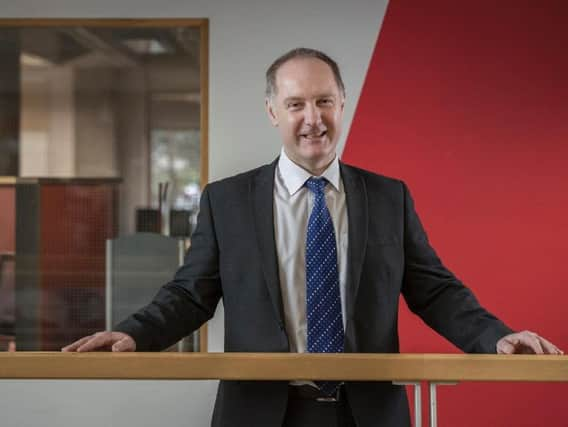Sunderland football legend Niall Quinn's return to the club would create 'Royal wedding' buzz for city


Amid speculation that the former player, chairman and caretaker manager is leading a consortium looking to buy the Black Cats, a Sunderland University expert believes a return to winning ways on the pitch can spark improved results off it for businesses.
Professor Lawrence Bellamy, academic dean for the faculty of business, law and management at the university, believes the success of a football club can help galvanise what he calls the ‘Royal Wedding phenomenon’.
Advertisement
Hide AdAdvertisement
Hide AdHe said: “A sporting club doing well can have a positive psychological impact.
“Good results realise increased leisure spending, and a more positive viewpoint of consumers.
“It’s the Royal Wedding phenomenon, where ‘feel-good’ is important.
“At a company level, investors can be encouraged by the appearance of a local sporting organisation being successful and the potential for associated benefits.
Advertisement
Hide AdAdvertisement
Hide Ad“Sporting clubs stand out because of their profile and so people notice the activity, for better or worse. Measuring these factors can be difficult, as the lost ‘non investment’ values will never be known.”
Professor Bellamy says that large football clubs can often have a mutually beneficial relationship with their affiliated city.
He added: “The City of Sunderland has enjoyed some successful times with Sunderland AFC.
“Premiership football brought with it large revenue streams from television deals to the club. That money is re-spent within the economy, internationally, nationally or more locally.
Advertisement
Hide AdAdvertisement
Hide Ad“Expenditure in one area leads to transactions in another and so the wider economy benefits.
"The club sources locally for supplies and services and employs local people, who go on to spend the money they receive. The club makes a substantial impact on the local economy.”
Texan businessman Ellis Short has been the majority shareholder at Sunderland AFC for nearly a decade and worked with Quinn when he was chairman at the Stadium of Light.
As for the players themselves, Professor Bellamy said: “The majority of club outgoings are associated with salaries and the specific impact of these can only be gauged by how players spend their money.
“Living and spending locally is critical to have the best local benefit. Players who live at distance and attend only for training and matches shift that benefit to other areas.”